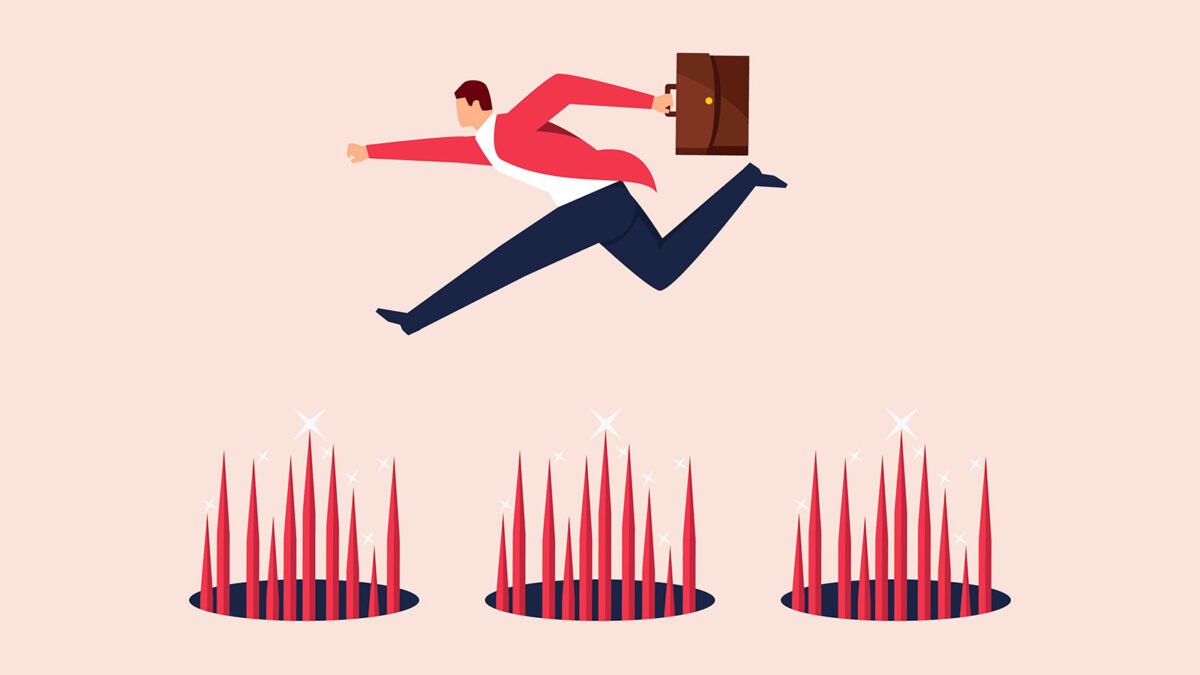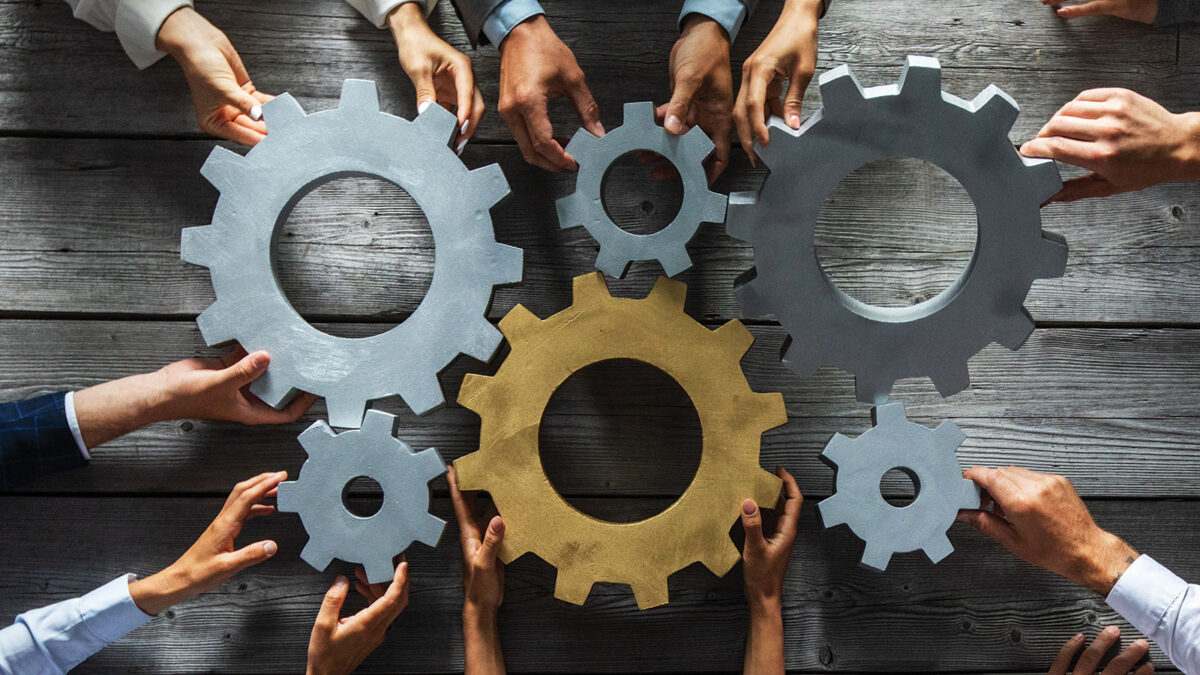
This Is What We Owe to Each Other
June 2023
Download This Article (.pdf)
As my term as CBA president comes to an end, I want to reflect on the question I posed to our community at the start of my term: What do we owe to each other? Over the course of the past year, I’ve explored this question through conversations on leadership, relationship building, and authenticity in the legal profession. We also asked this question during the CBA’s strategic planning process, where we generated a new collective “how” for the CBA in areas of building community through belonging, cultivating profession-wide relevance and reach, and generating sustainability. To create this how, we came together as a community and considered three underlying questions: What matters to us? What do we value? What do we owe to our community? The answers to these questions can be found in the CBA’s new strategic plan, which I encourage you to review, understand, and engage with over the coming years.
In my last message to you, I want to share what I’ve learned over the last year about what we owe to each other and my hope for the CBA as I pass the gavel to our next president. This has been a challenging and transformative year for the CBA. While there is much to look forward to in the future of our bar association, this past year has reminded me of the fragility of the values and the community we hold dear. We are the keepers of this community. Its successes and its challenges are directly influenced by our ability to collaborate with each other and serve as a collective voice of our profession. As a result, one of the first things we owe to each other is accountability. We are each accountable to one another as colleagues, as members of this community, and as human beings. We must set an example for each other and hold ourselves responsible for creating a professional community that reflects our collective purpose.
Creating a Culture of Collective Leadership
Our profession tends to divide people into heroes and villains. The litigiousness of lawyering inherently requires that there is always the proverbial “good guy” and “bad guy” in every matter. Of course, we instinctively see ourselves on the side of good in all matters. Despite the virtue with which we may see the causes we undertake, our role as the hero is simply relative, as there will always be someone who sees us as the villain.
In addition to the fundamental structure of the legal profession that requires heroes and villains, some people simply need villains in their life. They thrive on them, even outside the courtroom. And if there really isn’t a villain out to get them, they will create one. Why? Aside from our over-evolved neurobiological processes that perceive danger and seek safety, villains provide some people with an identity, value, and purpose. For them, a day without a battle is a day without much to claim, conquer, or talk about. Those who seek to become heroes must have a villain to battle.
We are all susceptible to the over-vilification of our peers, and when we do look to vilify someone, the list of the usual suspects includes:
- people we view as our competition;
- people we can’t easily impress;
- people who voice a different opinion;
- people with an opposing view on an issue;
- people who don’t acknowledge our agenda;
- people we cannot control; and
- people who speak truth when we don’t want to hear it.
Any and all of these people can provide a villain for our hero persona, even if their “crime” was not directly meant to hurt us. Sometimes the perpetrators we choose are just doing their job, speaking honestly, asking for clarification, expressing their personality, or, in most cases, oblivious to our narrative or the fact that we would even take offense to the degree we have.
When provided opportunity to lead, hero leaders can weaponize their leadership to create false and distracting “us versus them” dichotomies to boost their own sense of value and importance while diminishing the focus, efforts, and contributions of others. Hero leaders often lose sight of the collective mission or big picture in favor of their individual agenda.
So here is my challenge to all of you: Let go of the idea that the CBA, the legal profession, and the people within it need a hero to swoop in and fix our problems. A healthy and resilient future is not something a hero can create for us. It’s something we can only create together with one another.
The need for a hero in our story is a limiting belief. We cannot be generative, iterative, or innovative if we are collectively waiting for a hero leader to arrive on scene to save the day. I believe that we can work together to create a healthy and resilient community. When we let go of the assumption that we can be saved and that there are people who can save us, we can discover who we really are, what we really care about, and how to make it a reality for ourselves. We owe this to each other.
How exactly do we move on from the need for a hero leader? We must create purposeful cultures of collective leadership. When we are available to come together as a community to discover what we truly care about, we create space for everyone in the community to purposefully self-organize and make it a reality. In cultures of collective leadership, leaders are reframed from being a small subset of heroes, authority figures, or superiors into a horizontal, collective model where power is distributed in a way that allows everyone to play a unique and valuable role in actualizing the community’s vision for the future.
Through this approach, large-scale change emerges from many small change efforts. There’s no need for a hero leader to inspire everyone; rather, change emerges naturally because everyone within the community meets each other as equals to co-create the future. Because many big problems can only be resolved by a long series of small efforts, cultures of leadership, despite their seemingly slow place, often turn out to be the quickest way to make organizations—and the world—a better place.
Forming a New Social Contract
In meeting and working with so many of you over this past year in strategic planning, policy, equity, and governance work, I’ve come to understand the many tangible ways in which the container of the CBA is both serving and falling short of the needs and expectations of our members. In “seeing” one another in these conversations, I’ve come to believe that what we truly owe to each other is a new social contract in the CBA—one that aims to rebuild our relationships with each other, with the profession, and with our professional communities.
As a community of lawyers, we face the dual challenge of making good on an unfulfilled promise to ensure the CBA is available and inclusive of every Colorado lawyer, and fully realizing the transformational potential of the CBA as a route for sustainable professional success. To navigate this challenge, we need a new social contract for the CBA that can repair injustices while transforming the future. This new social contract must be grounded in humanity and based on principles of dignity, empathy, and belonging. It must encompass an ethic of care, reciprocity, and solidarity.
The basis of this new social contract would transcend the CBA’s strategic plan and focus intently on the vision for how our community engages, collaborates, and takes responsibility for playing a bigger role toward inspired community and professional growth. Components of this contract might include:
- members who are committed to a shared mission and adapt and iteratively prioritize to reach our goals;
- a bar association that does not have silos—members collaborate and create tangible value from our interdependencies;
- a bar association that’s not encumbered by hierarchy or control—members strategically build authentic, deep relationships with internal and external stakeholders who are critical to our success;
- members who meet their goals and commitments—we hold one another accountable and commit to doing whatever it takes to succeed together;
- members who are seekers, who are aware of and open about the areas in which we need to grow, and who proactively coach one another;
- members who maintain engagement and accept responsibility for elevating one another’s energy, celebrating our successes, and expressing gratitude; and
- members who are deeply committed to one another—we lead with generosity and make caring, trusting, and supportive connections.
The benefits of a new approach are compelling. A new social contract for the CBA can facilitate sustainability for the organization and professional mobility for its members, secure the community consensus needed to address an evolving legal profession, enable innovation in service of progress, and foster a more inclusive organization.
A No Longer Uncertain “How”
A year ago, I told you that the CBA was facing an uncertain “how” in a rapidly changing legal profession and evolving societal climate. I asked you to join me in the work of purpose finding. Thank you for showing up. Thank you for engaging. Thank you for reflecting. Because of each of you, the CBA has a new strategic plan that was developed not by hero leaders but by the vision of a community where every member played a role in ascertaining what this community cares about. We’ve always had our why. Together we’ve created a new how. Each of you is proof that we can actually save ourselves. Each of you is proof that our power as a whole is so much greater than the power of any one individual.
Thank you for allowing me the opportunity to join you on this journey. It’s been the privilege of my career to serve, and I’m forever grateful for the ways in which you’ve allowed me to be seen, to be heard, and to belong. This is what we owe to each other.
Of course, we instinctively see ourselves on the side of good in all matters. Despite the virtue with which we may see the causes we undertake, our role as the hero is simply relative, as there will always be someone who sees us as the villain.


